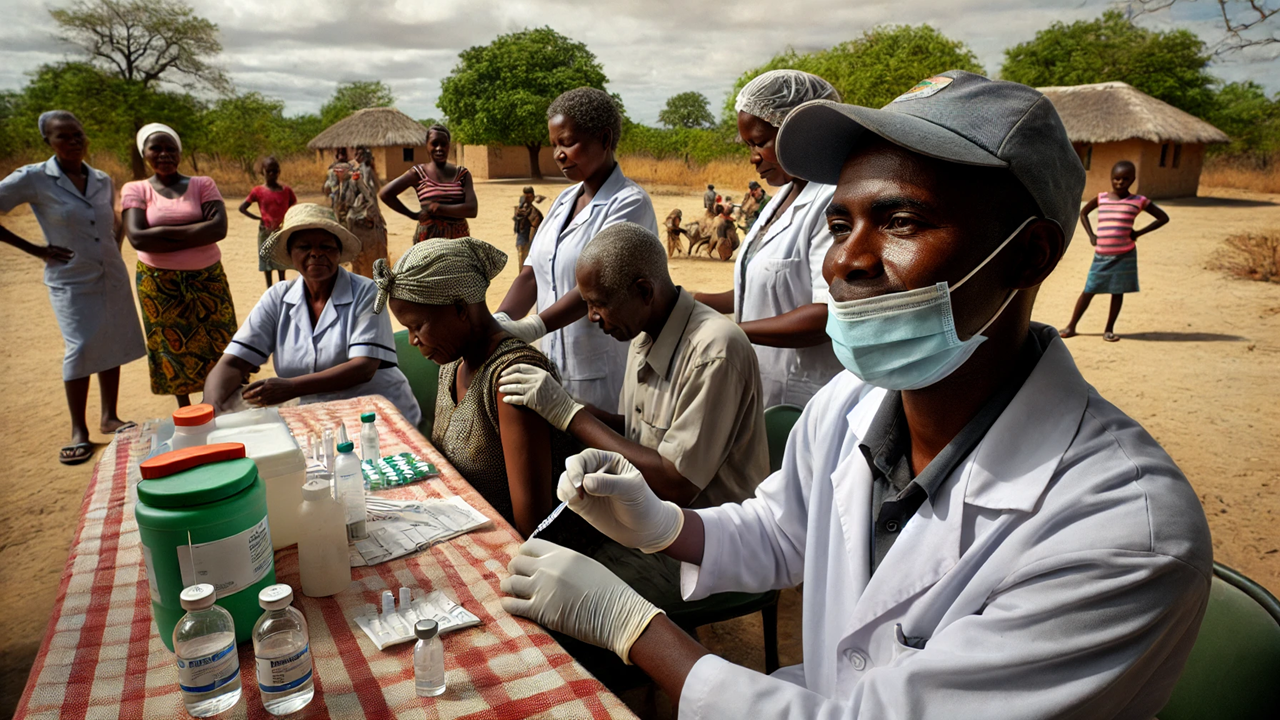EIB and EU Support Angola’s HPV Vaccination Drive to Protect Two Million Girls
From 2026 onwards, the vaccine will become part of Angola’s routine immunization schedule for all 9-year-old girls, ensuring long-term sustainability and integration into the national healthcare system.

- Country:
- Angola
The European Investment Bank (EIB Global), in partnership with the European Union, has launched a major health investment supporting Angola's national vaccination campaign against the human papillomavirus (HPV) — the leading cause of cervical cancer. With €50 million in financing from EIB Global and an additional €4.5 million EU grant, the campaign aims to immunize two million girls aged 9 to 12 and lay the groundwork for the country's first-ever national cervical cancer prevention programme.
Led jointly by the Ministry of Health and Ministry of Education of Angola, in collaboration with the World Health Organization (WHO), UNICEF, and the United Nations Development Programme (UNDP), the initiative reflects Angola's strong political commitment to women's health, public health equity, and global disease elimination goals.
A New Era in Public Health for Angola
The campaign was launched in Namibe Province during a high-profile event attended by EIB President Nadia Calviño, Angola's Minister of Health Dr. Sílvia Lutucuta, and First Lady Ana Dias Lourenço, who serves as an advocate for women's and girls' empowerment. The launch marks the beginning of a 10-day national vaccination drive, which will reach girls across all provinces through schools, health centers, and community outreach programs.
"Every vaccinated girl represents a life with more hope and opportunity," said EIB President Nadia Calviño. "By standing proudly with Angola in this campaign against cervical cancer, we are helping protect not just health, but the future and dignity of an entire generation of young women."
From 2026 onwards, the vaccine will become part of Angola's routine immunization schedule for all 9-year-old girls, ensuring long-term sustainability and integration into the national healthcare system.
Preventing a Leading Cause of Cancer in Women
Cervical cancer remains a serious public health challenge in Angola. According to 2022 data, the disease accounted for approximately 17% of all cancer cases treated in the country, with over 900 diagnoses annually. Yet, medical experts stress that it is largely preventable through timely HPV vaccination.
"This vaccine, which begins to be administered today, is a shield of love — a form of protection for the women of tomorrow," said First Lady Ana Dias Lourenço at the launch. "It represents years of research, science, and global solidarity to prevent suffering and preserve the dignity of our girls."
Partnerships for Impact and Resilience
The EIB's financial support is part of the EU's Global Gateway initiative, which focuses on building sustainable, people-centered partnerships around the world. The Angola vaccination programme aligns with the WHO's Global Strategy to Eliminate Cervical Cancer by 2050, which calls for 90% of girls fully vaccinated by age 15.
"This campaign is proof that when we invest together in people, we build stronger, healthier societies," said EIB Vice-President Karl Nehammer, who oversees the Bank's health operations. "The EIB is proud to support Angola's future — in girls who will grow to lead, learn and lift their communities."
Rosário Bento Pais, EU Ambassador to Angola, added: "Through the Global Gateway, the European Union is investing in people and in partnerships that make a lasting difference. Our collaboration with Angola and the EIB shows how European support is helping to strengthen public health and create opportunities for the next generation."
Delivering Health Equity and Community Reach
The campaign employs a multi-sectoral approach to reach every eligible girl, including those in remote and underserved regions. By combining school-based delivery, mobile vaccination units, and community outreach, Angola's health system aims to achieve equitable access across the country.
Dr. Sílvia Lutucuta, Minister of Health, called the initiative a "historic milestone for women's health."
"It is with great satisfaction that we witness the launch of the National Vaccination Campaign against Cervical Cancer — a milestone for public health and the future of women in Angola," she said. "This campaign ensures that prevention is no longer a privilege, but a right."
The Ministry of Education is also playing a critical role by coordinating with local schools to reach eligible students efficiently and safely, while WHO and UNICEF are providing technical support, vaccine logistics, and training for healthcare workers.
A Strong Alignment with Angola's National Development Vision
The HPV vaccination campaign supports the goals of Angola's National Development Plan (2023–2027) and the 2030 Sustainable Development Agenda, reinforcing the country's strategic emphasis on human capital development and universal health coverage.
It also strengthens Angola's participation in the COVAX mechanism and other global health platforms promoting equitable access to vaccines. By establishing the infrastructure for vaccine storage, delivery, and data management, the campaign is expected to improve Angola's overall immunization system beyond HPV prevention.
Investing in Girls, Investing in the Future
Beyond immediate health outcomes, the programme reflects a long-term vision of empowerment through health equity. By protecting young girls against cervical cancer, the campaign helps to reduce future healthcare costs, protect families from economic hardship, and enhance women's participation in education and the workforce.
"By investing in girls' health, we are investing in Angola's prosperity," said an EIB representative. "Healthy girls grow into empowered women who contribute to their communities and shape stronger nations."
The success of Angola's HPV vaccination drive could serve as a model for other African nations looking to combine international financing, government leadership, and community engagement to achieve large-scale public health results.









